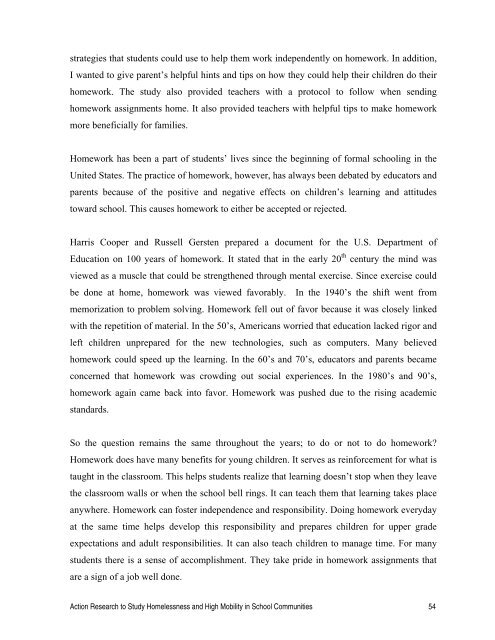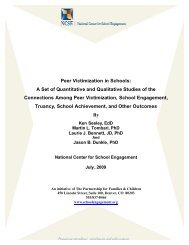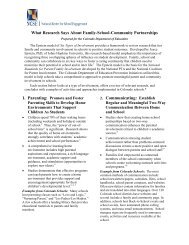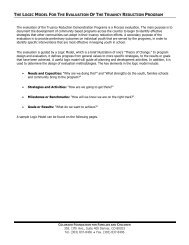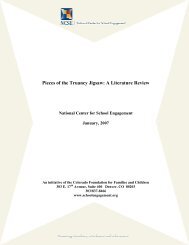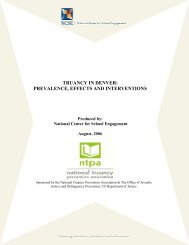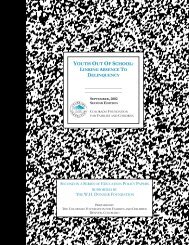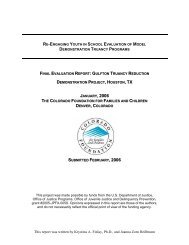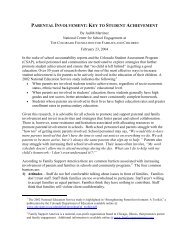Section 1: Academic Achievement - National Center for School ...
Section 1: Academic Achievement - National Center for School ...
Section 1: Academic Achievement - National Center for School ...
Create successful ePaper yourself
Turn your PDF publications into a flip-book with our unique Google optimized e-Paper software.
strategies that students could use to help them work independently on homework. In addition,<br />
I wanted to give parent’s helpful hints and tips on how they could help their children do their<br />
homework. The study also provided teachers with a protocol to follow when sending<br />
homework assignments home. It also provided teachers with helpful tips to make homework<br />
more beneficially <strong>for</strong> families.<br />
Homework has been a part of students’ lives since the beginning of <strong>for</strong>mal schooling in the<br />
United States. The practice of homework, however, has always been debated by educators and<br />
parents because of the positive and negative effects on children’s learning and attitudes<br />
toward school. This causes homework to either be accepted or rejected.<br />
Harris Cooper and Russell Gersten prepared a document <strong>for</strong> the U.S. Department of<br />
Education on 100 years of homework. It stated that in the early 20 th century the mind was<br />
viewed as a muscle that could be strengthened through mental exercise. Since exercise could<br />
be done at home, homework was viewed favorably. In the 1940’s the shift went from<br />
memorization to problem solving. Homework fell out of favor because it was closely linked<br />
with the repetition of material. In the 50’s, Americans worried that education lacked rigor and<br />
left children unprepared <strong>for</strong> the new technologies, such as computers. Many believed<br />
homework could speed up the learning. In the 60’s and 70’s, educators and parents became<br />
concerned that homework was crowding out social experiences. In the 1980’s and 90’s,<br />
homework again came back into favor. Homework was pushed due to the rising academic<br />
standards.<br />
So the question remains the same throughout the years; to do or not to do homework?<br />
Homework does have many benefits <strong>for</strong> young children. It serves as rein<strong>for</strong>cement <strong>for</strong> what is<br />
taught in the classroom. This helps students realize that learning doesn’t stop when they leave<br />
the classroom walls or when the school bell rings. It can teach them that learning takes place<br />
anywhere. Homework can foster independence and responsibility. Doing homework everyday<br />
at the same time helps develop this responsibility and prepares children <strong>for</strong> upper grade<br />
expectations and adult responsibilities. It can also teach children to manage time. For many<br />
students there is a sense of accomplishment. They take pride in homework assignments that<br />
are a sign of a job well done.<br />
Action Research to Study Homelessness and High Mobility in <strong>School</strong> Communities 54


